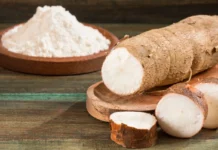Glycemic Index of White Potato
Glycemic Index (GI):
White potatoes have a glycemic index (GI) that typically ranges from 56 to 111, depending on the variety and cooking method. For example, boiled white potatoes tend to have a lower GI (around 56), while baked or mashed potatoes have a higher GI (closer to 111). This variability means that potatoes can cause different blood sugar responses based on how they are prepared.
Glycemic Load of White Potato
The glycemic load (GL) of white potatoes also varies with the cooking method and portion size. For a medium-sized boiled potato (about 150 grams), the GL is around 15, which is considered moderate. The GL can be higher for mashed or baked potatoes.
Nutritional Profile of White Potato (Per 100 Grams)
| Nutrient | Amount |
|---|---|
| Calories | 77 kcal |
| Protein | 2.0 g |
| Total Fat | 0.1 g |
| Saturated Fat | 0.0 g |
| Carbohydrates | 17.5 g |
| Fiber | 2.2 g |
| Sugar | 0.8 g |
| Vitamin C | 19.7 mg |
| Potassium | 429 mg |
| Magnesium | 23 mg |
Conclusion
White potatoes have a moderate to high glycemic index depending on the preparation method. While they provide essential nutrients like vitamin C and potassium, their impact on blood sugar can be significant, especially when eaten in large portions or when baked or mashed. Opting for boiling or steaming can help reduce the glycemic load and make them a better choice for managing blood sugar.






